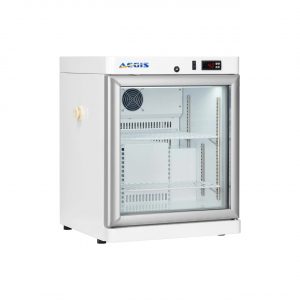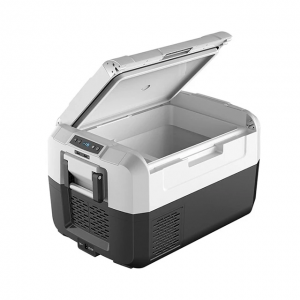5 Best Practices for Effective Vaccine Storage
Vaccines are a valuable medical asset. Improper storage of vaccines can be detrimental, especially during times of emergencies or outbreaks of deadly diseases. Ensuring that vaccines are appropriately stored can go a long way in maintaining their potency and efficiency.
As per the CDC, “Proper vaccine storage and handling practices play a very important role in protecting individuals and communities from vaccine-preventable diseases. Vaccine quality is the shared responsibility of everyone, from the time it is manufactured until it is administered”.
Below are 5 Best Practices that will keep your vaccines effective and good as new.
1. Adherence to CDC guidelines
The CDC has provided a set of standard guidelines on how to correctly store and handle vaccines. Their “Vaccine Storage and Handling Toolkit” provides detailed instructions to be followed at every stage of the cold chain process such as staff training, storage, inventory management, transport and handling.
With regards to important aspects like storage, they recommend only a medical grade refrigerator (discussed in detail in point number 3). They emphasize on simple aspects such as keeping the door of the refrigerator shut, avoiding overcrowding within the unit, placing water bottles where vaccines shouldn’t be, etc. These simple steps can help maintain the effectiveness of the vaccines.
2. Inventory check
Most governing bodies highly recommend checking vaccines immediately upon receiving them. Aspects like vaccine expiry dates, external damage and even temperatures are required to be checked once vaccines are received.
It is recommended by various state boards to appoint a vaccine coordinator who would oversee responsibilities such as ordering vaccines, keeping a check on vaccine inventory, checking the received vaccines, storage and maintenance of received vaccines, and taking action over expired or damaged vaccines.
The vaccine coordinator is also required to keep a thorough check on the timely ordering of vaccines, organization of vaccines, and conducting a monthly vaccine inventory log.
3. Medical grade refrigerator
Upon receiving the vaccines, it is important to place it into a medical grade refrigerator. The CDC recommends a refrigerator specifically catered to storage of vaccines over a dormitory style refrigerator.
Medical refrigerators are designed to keep the nature of its sensitive and vital contents in mind. They are built to ensure proper air flow, temperature control, adjustable wire shelves, electronic digital thermometer and alarm systems among other essential features. All these built-in facets help maintain the potency as well as the shelf life of vaccines and other medical components.
4. Proper organization
Merely placing vaccines in a medical refrigerator may not be enough to ensure safe storage of the vaccines. The CDC has suggested ways in which vaccines can be stored to ensure their safety within the unit.
Vaccines must be stored in their original boxes. However, instead of piling the boxes in the refrigerator they can be stored using transparent or wired trays for ease of visibility. Vaccines can be stored based on their expiry dates or shelf life, with the ones expiring soon to be placed in front.
Vaccines should not be stored near the bottom shelf or on the door. Water bottles must be stored in these places instead to aid with temperature regulation.
5. Back up refrigerator
Vaccines and medical components are particularly sensitive and even minor fluctuations in temperature or environmental factors can impact them negatively. Hence it is important to have a backup refrigerator handy. This could be an additional medical grade refrigerator or a smaller portable medical refrigerator/freezer.
Most portable refrigerators possess a majority of the functions of an actual refrigerator and hence can be utilized in situations of long duration power outages or during routine maintenance/defrosting schedules of the medical refrigerator/freezer.
Although all these steps may seem daunting, however they go a long way in ensuring safety of the vaccines, and ultimately the patients. Allow Aegis to make your vaccine-care more secure by utilizing our medical grade refrigerators or our portable refrigerators. They are packed with all the essential features such as temperature control and internal fans. They also include additional features like notification-based alarm system that would aid in reducing your burden while caring for your vaccines. Call us on 1-800-796-2344 or write to us at support@aegisfridge.com for more details.
Sources:
- https://www.cdc.gov/vaccines/hcp/admin/storage/downloads/C-vax-temp-best-practices-fridge-C.pdf
- https://www.mass.gov/doc/guidelines-for-compliance-with-federal-vaccine-administration-requirements/download
- https://www.cdc.gov/vaccines/hcp/admin/storage/index.html#print
- https://www.cdc.gov/vaccines/hcp/admin/storage/toolkit/storage-handling-toolkit.pdf




